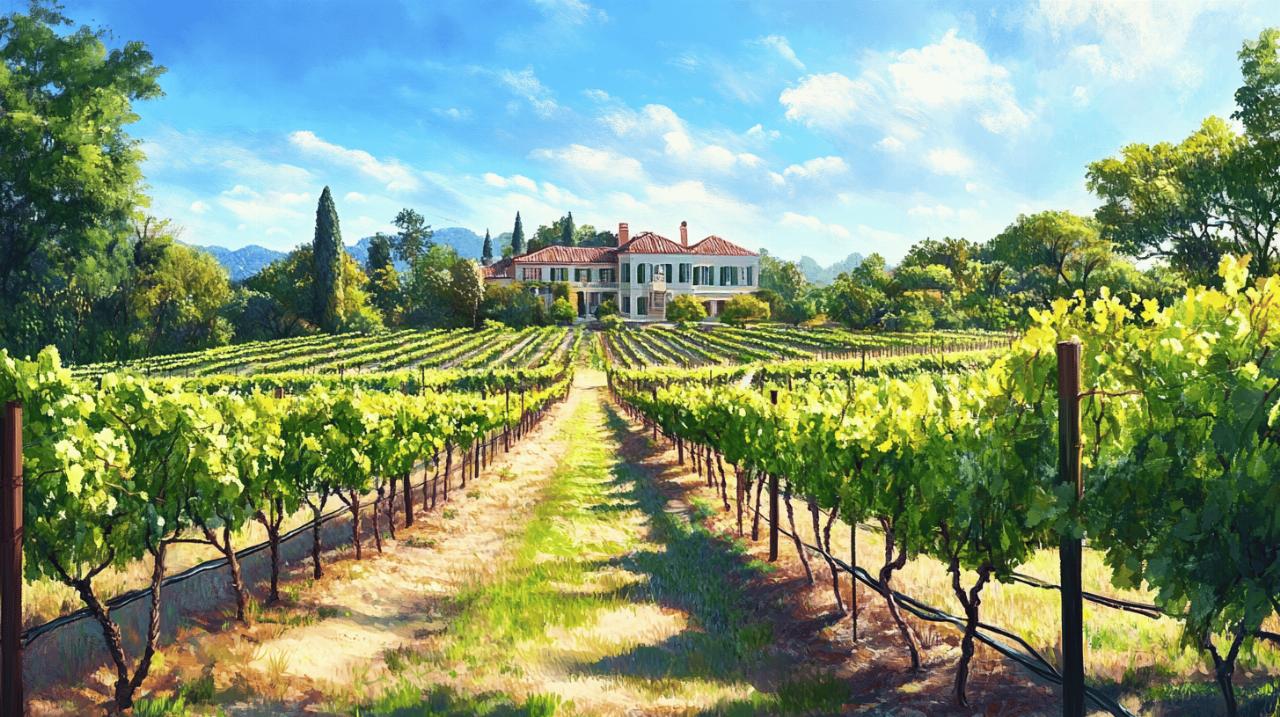Professional Relationships That Matter When You ‘Investir dans une propriete viticole : les cles de reussite’
Venturing into vineyard ownership represents a blend of passion, strategic planning, and potentially lucrative returns for those with the proper approach. While many are drawn to the romantic notion of owning sprawling vines beneath the Mediterranean sun, the reality involves complex relationships that can make or break your investment. Successful vineyard ownership isn't just about having the right soil and climate; it's equally about cultivating professional connections that support your venture from plantation to bottle.
Building connections with wine industry experts
When looking to investir dans une propriete viticole, establishing solid relationships with industry specialists is absolutely fundamental. These connections provide invaluable insights that no amount of research can replace, particularly for newcomers to the viticulture scene. The vineyard business operates on generations of knowledge and established practices that can take years to master independently.
Collaborating with seasoned vineyard consultants
Vineyard consultants bring technical expertise that can dramatically improve your chances of success. These specialists evaluate soil composition, drainage patterns, and microclimatic conditions—factors that significantly impact grape quality. A good consultant doesn't just provide a one-off assessment but establishes an ongoing relationship, guiding you through seasonal challenges and helping implement sustainable viticultural practices. Their recommendations on vineyard layout, vine density, and varietals suited to your specific terroir can save you from costly mistakes while maximising your estate's potential.
Networking with established wine producers
Building rapport with successful vintners in your region offers practical wisdom that textbooks simply cannot provide. Established producers have weathered multiple harvests, facing everything from unexpected frost to market fluctuations. These relationships often develop naturally through regional wine events, industry conferences, and local agricultural associations. Many seasoned winemakers willingly share their experiences, particularly if approached with genuine respect for their craft. These connections can evolve into mentorships or even collaborative opportunities that benefit both parties, such as shared equipment purchases or coordinated marketing efforts.
Financial partnerships for vineyard investments
The financial aspect of vineyard ownership extends far beyond the initial purchase. Cultivating relationships with financial partners who understand the unique rhythms and requirements of viticulture proves essential for long-term stability. Unlike many commercial ventures, vineyards operate on extended timelines, with significant investment periods before realising returns.
Working with specialist agricultural lenders
Standard commercial banks often struggle to accommodate the distinctive cash flow patterns of vineyard operations. Agricultural lenders specialising in viticulture understand that establishing a productive vineyard requires substantial upfront investment with returns potentially taking years to materialise. These financial partners structure loans that align with harvest cycles and production timelines rather than imposing conventional repayment schedules. Building a transparent relationship with such lenders allows for greater flexibility during challenging seasons and provides access to industry-specific financial products designed for vineyard development and expansion.
Developing relationships with investment advisors
Investment advisors with expertise in agricultural assets offer strategic guidance on structuring your vineyard investment to optimise both tax efficiency and long-term appreciation. These professionals help balance the operational aspects of wine production with broader investment portfolio considerations. A trusted advisor familiar with wine estate valuations can provide realistic projections about potential returns and capital appreciation. They also assist in navigating complex ownership structures that might involve family succession planning or partnership arrangements with other investors, ensuring your vineyard investment aligns with broader financial goals.
Regional alliances for market success
The adage that wine is made in the vineyard but sold through relationships holds particular truth in the competitive wine market. Establishing strong regional connections creates opportunities for knowledge sharing, resource pooling, and market access that individual producers might struggle to achieve independently.
Engaging with local wine cooperatives
Wine cooperatives offer smaller vineyard owners collective strength through shared resources and established market channels. These organisations provide access to sophisticated processing equipment that might otherwise be financially unfeasible for individual estates. Beyond production advantages, cooperatives offer established distribution networks and marketing support that can significantly reduce the time required to bring your wines to market. Active participation in cooperative governance allows you to influence regional production standards while gaining valuable insights from other members facing similar challenges and opportunities.
Forming bonds with neighbouring estates
Collaborative relationships with neighbouring vineyards create numerous practical advantages beyond simple camaraderie. These connections facilitate equipment sharing, coordinated pest management strategies, and labour pooling during intensive periods like harvest. Neighbouring estates often face identical weather challenges, making information exchange particularly valuable for responding to immediate threats like frost or disease outbreaks. Additionally, established neighbours can introduce you to their trusted service providers, from mechanical harvester operators to barrel suppliers, helping you navigate local business customs and expectations.
Supply chain relationships for distribution
Even exceptional wines require effective distribution channels to reach appreciative consumers. Developing relationships throughout the supply chain ensures your wines find appropriate markets and are properly represented to potential buyers.
Cultivating connections with wine merchants
Wine merchants serve as crucial intermediaries between producers and consumers, particularly for estates without direct sales infrastructure. Respected merchants bring credibility to new wines through their established customer relationships and reputation for quality selection. Building genuine relationships with merchants involves understanding their business needs, including margins, delivery reliability, and marketing support. These partnerships work best when approached as collaborative rather than transactional, with both parties invested in successfully presenting your wines to appropriate market segments.
Establishing Partnerships with Exporters and Importers
For vineyard owners with international ambitions, relationships with export specialists and foreign market importers prove essential for navigating complex regulations and cultural preferences. These partners provide crucial guidance on packaging requirements, labelling regulations, and certification processes for different markets. Successful exporters also offer market intelligence about consumer preferences and price positioning in various countries, helping you adapt your offerings accordingly. Cultivating these relationships requires patience and consistent quality, as importers seek reliable partners who can maintain supply and standards year after year, gradually building your brand presence in foreign markets.
Legal and regulatory support networks
Investing in wine estates requires establishing solid professional relationships with experts who understand the unique challenges of vineyard ownership. When you're looking to put your money into a wine property, building the right network of specialists can make all the difference between a brilliant investment and a costly misstep.
Securing proper solicitors and property experts
Finding solicitors who specialise in vineyard acquisitions is absolutely essential. These legal professionals understand the complexities of agricultural land transactions and can spot potential issues that general property lawyers might miss. A good vineyard solicitor will examine easements, water rights, and land use restrictions that could impact your ability to produce wine profitably.
Property experts who focus on viticultural estates can provide accurate valuations and identify hidden value or potential problems. They'll assess soil quality, vine health, and existing infrastructure to determine if the asking price aligns with the property's true worth. Many wine regions have estate agents who work exclusively with vineyard properties and understand both the agricultural and commercial aspects of these unique investments.
Building relationships with local surveyors is equally important, as they can evaluate buildings, equipment, and land features to ensure everything is in proper working order. Remember that wine estates typically include both agricultural components and production facilities, requiring specialists who understand both aspects.
Navigating appellation controls and wine regulations
Wine production is heavily regulated, with strict rules governing everything from grape varieties to production methods, particularly in prestigious regions like Bordeaux and Burgundy. Establishing relationships with regulatory consultants who understand these complex systems is vital to your success.
Appellation controls dictate what you can grow and how you can market your wine. Experts in this area can help you understand the requirements for maintaining valuable appellation designations and advise on compliance matters. These relationships become particularly important when planning any changes to production methods or vineyard management.
Taxation specialists with experience in agricultural businesses can help navigate the unique financial aspects of vineyard ownership. Wine production involves long lead times between investment and revenue, creating distinctive cash flow patterns that require specialised financial planning.
Customs and excise professionals become essential partners if you plan to export your wines. They can guide you through the paperwork and requirements for moving wine across borders, helping you avoid costly delays or compliance issues that might affect your distribution.
